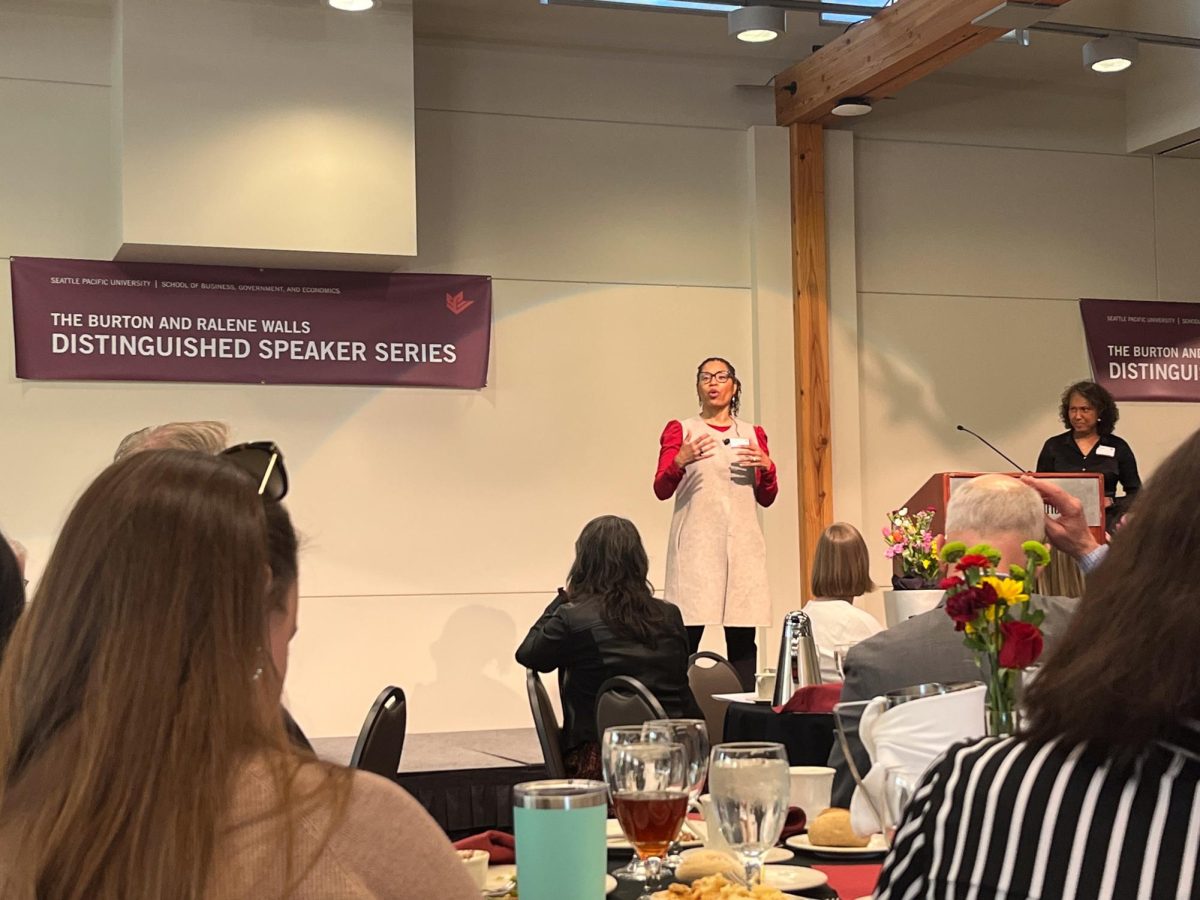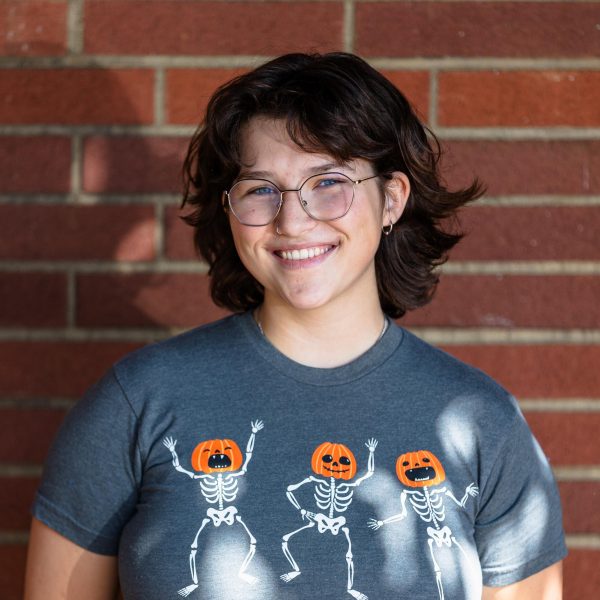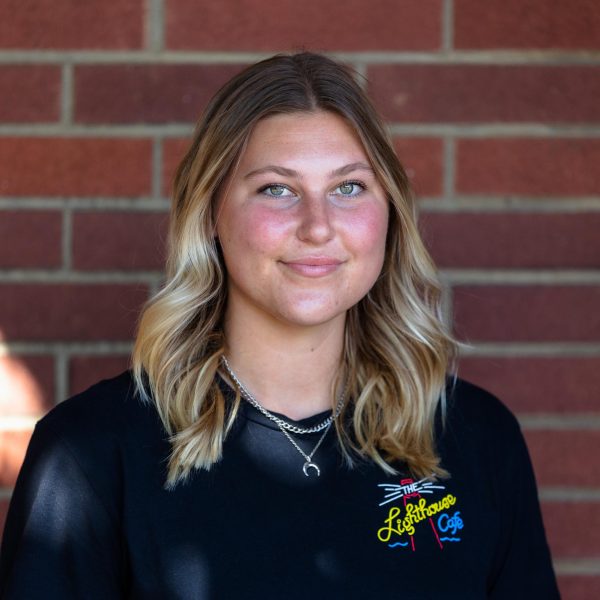The Chief Executive Officer of M. J. Murdock Charitable Trust, Romanita Hairston, spoke to Seattle Pacific University’s school of business, government and economics members on April 30, 2024.
“We have a great speaker today. It’s an exciting journey, and we’re glad that you’re a part of it,” said Dean Ross Stewart, introducing Hairston as the 21st annual speaker in the Burton and Ralen Walls Distinguished Speaker Series. The series aims to introduce outstanding business leaders to students.
Hairston’s presentation, “Empowering Human Flourishing: The Importance of Tri-Sector Solutions For The Common Good,” began with an expression of empathy.
“You should know that underneath that [introduction] are the years and years, days and days, minutes and minutes, moments and moments of showing up and trying to be present, to utilize ideas and to live on behalf of a world that is in need,” Hairston said emphatically. “We’re on a journey.”
Hairston urges students in their four years to ask the questions college uniquely affords:
“Reflect on [your] internal state in place in the world,” Hairston said. “Ask those questions with a sense that the implications of them are not for you, but for the way you will be positioned to serve a world in need.”
Her role involves leading an organization that supports the growth of Pacific Northwest nonprofits through grants. The Trust focuses on five sectors: arts and culture, education, health, human services and scientific research. The CEO called out to her audience while silverware clinked and chairs shifted.
“How many of you sense in the world that working for the common good is the common thing? Any hands? Not one hopeful in here,” she exclaimed, as no hands were raised. “Everything around us today says that for the world to be right, someone’s got to lose.”
Hairston focused on how to solve problems for the common good, members of all careers must practice “tri-sector solutions.”
Before jumping into the meat of her counter-cultural argument, Hairston described the three sectors: public, private and social. The public sector is governmental entities, with careers like sewage workers, law enforcement and military working for public aid.
“It just exists to serve people, to make sure we have roads and clinics and hospitals,” Hairston said. “But it’s got nobody funding everything and everybody’s arguing about taxes, which means the fundamental challenge is how to drive common good with limited resources.”
In the public sector, who is in office, who puts them there and who decides which citizens get governmental public aid often gets the spotlight.
The private sector, on the other hand, has seemingly unlimited resources and a testy relationship with the common good. Cultural and financial benefits go to the shareholders and owners.
“The private sector is everything that’s not owned by the government. Isn’t it weird to be described by something you’re not?” Hairston said. “When you exist to drive shareholder value, you want to understand what consumers and shareholders want.”
The social or “not-for-profit” sector drives the common good while maintaining financial gain. Like the private sector, it is individually owned but focused on the public good. Value and profit are not distributed to the owner.
This is the sector Hairston has spent most of her career in.
In 2022, Seattle Pacific University, the Alaythia Fellowship and the Charitable Partnership Fund were three nonprofits given grants. They were awarded $80,000 for curriculum revision, $20,700 for support of wilderness ministry experiences and $137,500 for homeless strategies and solutions.
The Murdock Trust has invested more than $1.4 billion into nonprofit organizations in the Pacific Northwest since 1975.
“You’ve got idealistic, practical, competent and capable folks who are drawing people together in a voluntary way, designed to shore up the very fabric of society,” Hairston said. “They look purely at the social landscape and choose to solve problems.”
Hairston described the social sector as informed mainly by people of faith and volunteer organizations.
“Things for the common good started because it was something we all need,” Hairston said. “You’re not getting shareholders and you’re not getting tax dollars, it’s just the voluntary contributions of people who care about the common good.”
Next, Hairston asks, imagine public, private and social sector folks trying to talk about what is good and right in the world. Solutions to seemingly irreparable problems lie within cross-sector work and innovation.
To go forward with tri-sector solutions, one must be a “tri-sector athlete.”
“That’s what I encourage you to be, wherever you find yourself in this sectoral landscape,” Hairston said. “The problems and challenges of the future will require us all to work together, across sectors.”
Tri-sector leaders appreciate the needs, aspirations and incentives of people in all three sectors, which includes having the language to make connections across boundaries. They balance motivation to create public and private value across all sectors with a creative vision. Hairston described such vision as not only thinking outside the box but also creating new boxes to think in.
Hairston describes successful tri-sector athletes as “fundamentally artists.” Linking people and sectors to work toward social betterment and the common good while maintaining private funding is complex and increasingly necessary.
Leaders think outside the box and create new boxes to think in. Emerie Cantrell, a third-year business administration major, attended the speech for class.
“It was very inspiring to me, that idea of making your own box,” Cantrell said. “One thing I want to start doing is getting out of my comfort zone and making people feel like they’re at home and that they’re welcome in the world.”
Hairston provided a psychological definition of human flourishing: positive emotions, relationships and meaning. She offered a philosophical one: all life points towards this notion of thriving.
“The efforts of our lives point towards this sense that we want our lives and the world and the lives of others to be better,” Hairston said.
Hairston provided, concluding her speech, a religious definition with John 10:10 NIV:
10 The thief comes only to steal and kill and destroy; I have come that they may have life, and have it to the full.
“We are all part of God’s creation, all sought after and desired to have a full life,” Hairston said. “My commitment to human flourishing and the common good and tri-sector solutions is because of my belief that that is what God is committed to — working across boundaries wherever we find them to deliver the best and most durable solutions that drive change.”



















































































